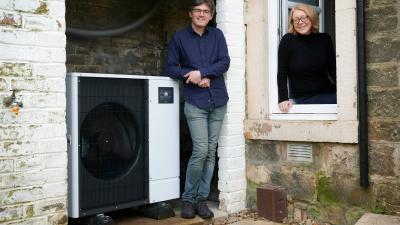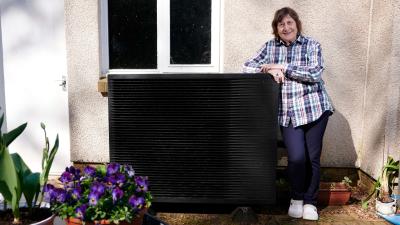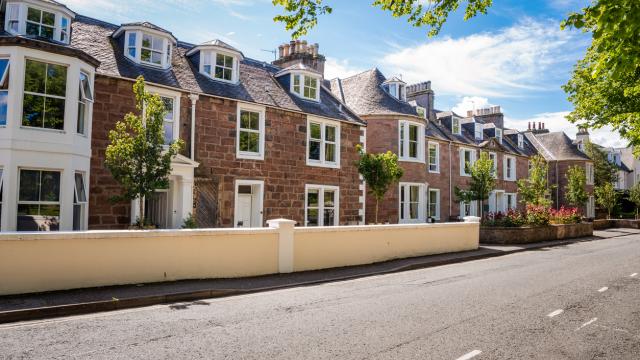
Heat Pumps: The future of heating our homes
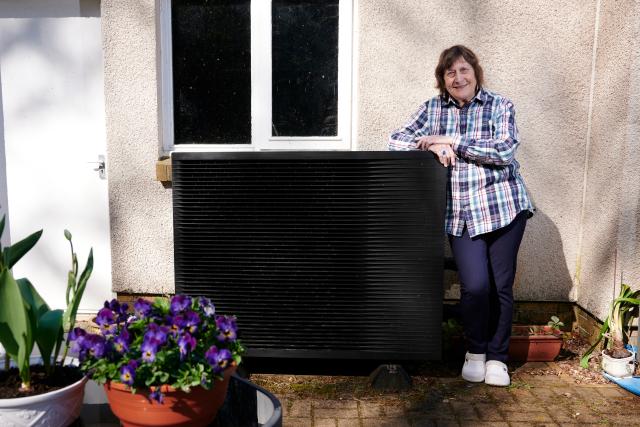
Heating our homes
At some point many of us will face the dilemma of what to do when our gas or oil boiler reaches the end of its life. Do you just replace with the same and be at the mercy of fluctuating fossil fuel prices – or do you instead go with a system that will still keep your home warm and cosy and may lower your energy bills AND be good for the environment.
The way forward is a heat pump!
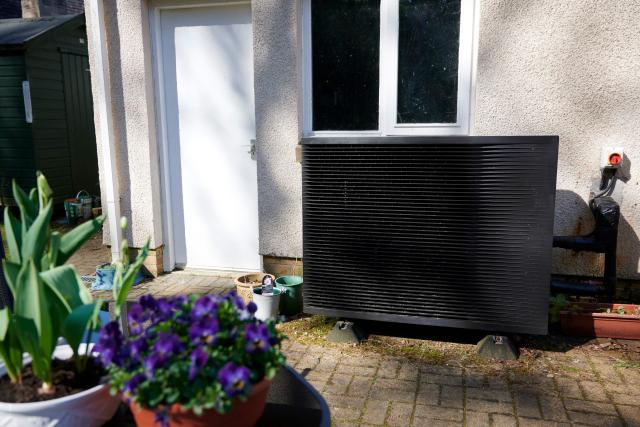
What is a heat pump?
A heat pump takes the cold air from outside and warms it to keep your radiators toasty (kind of like a fridge in reverse).
Alongside measures such as good insulation, a heat pump can help lower energy bills as it works on electricity, and in Scotland the majority of that comes from renewables. So, it’s a win for your pocket and a win for nature and the environment.
We need to make the switch to heat pumps as currently emissions from our homes and buildings are too high and using renewable ‘clean’ heat will make a big difference.
And for those worried about changing the way we heat our homes; this isn’t a new thing. Several decades ago, many of us used inefficient storage heaters and before that it was coal, so heat pumps are just the next stage.
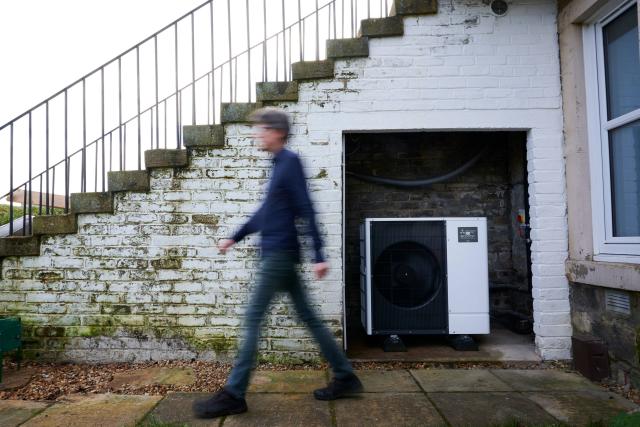
How do you go about installing a heat pump?
Replacing your old boiler with a heat pump does come with a slightly higher cost than a traditional combi boiler but there are grants and loans available to help with the initial upfront costs.
Making your home less ‘leaky’ should be one of the first step in helping you reduce your energy bills, an added benefit is that this ensures the heat pump works at its best – but again you can get some help with this – and who doesn’t want to stop the draughts?
We visited two householders who decided to make the switch to a heat pump. Find out below why they did it and how it's going.
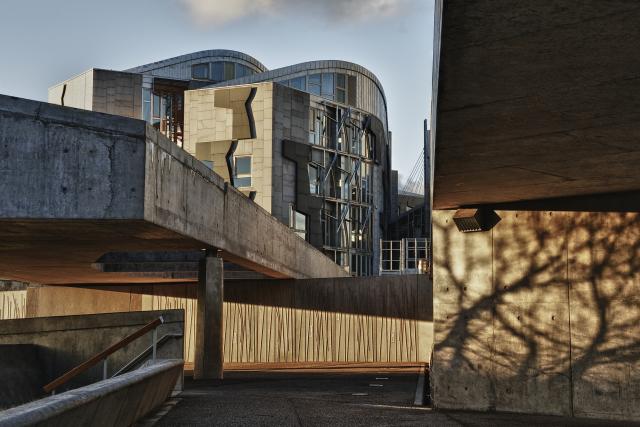
What needs to happen now?
We all deserve a warm, energy-efficient home—and lower bills to match. But without bold action, too many households and businesses will be left behind. That’s why the Heat in Buildings Bill due this Autumn, really needs to count. It’s a once-in-a-generation opportunity to lead the way on climate and fairness. It needs to be ambitious, with clear, attainable deadlines that will deliver real change. Watch this space!
